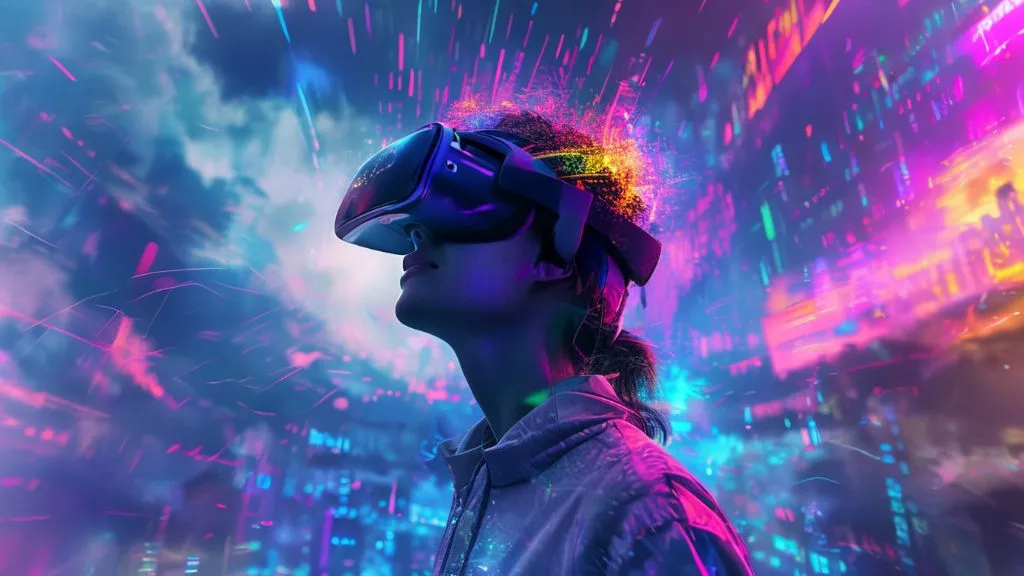April 2025 witnessed a significant buzz in the artificial intelligence (AI) community. Reports emerged that OpenAI’s latest model, tentatively named ‘o3,’ achieved an impressive IQ score of 132 in an unofficial test. This development goes beyond mere technological advancement, suggesting that AI is edging closer to the “singularity,” where its intellectual capabilities could surpass those of humans. Notably, inference-focused models from global AI leaders like Google, Anthropic, and DeepSeek have also demonstrated IQ scores exceeding 100, highlighting the accelerating progress in AI intelligence.
However, amidst this wave of innovation, the current standing of Korean AI presents a somewhat less optimistic picture. Concerted efforts from the government and domestic companies are crucial to bridge the gap with global frontrunners. This article will delve into the IQ levels of mainstream generative AI, analyze the current landscape of the Korean AI industry, and explore its future prospects.

AI’s IQ Breakthrough: Mainstream Generative AI Exceeds Expectations
Recent findings from https://www.google.com/search?q=Tracking.ai.com indicate that OpenAI’s inference-specialized model, ‘o3,’ achieved an IQ of 132 on the Mensa Norway IQ test, signaling a new frontier in AI intelligence. While this was an online, unofficial assessment, the result strongly suggests o3’s exceptional capabilities, particularly in visual pattern recognition. https://www.google.com/search?q=Tracking.ai.com, founded by TV producer and data analyst Maxim Rot, compiles IQ test results for various AI models.
Adding to this impressive trend, Google’s ‘Gemini 2.5 Pro Experimental’ also demonstrated strong reasoning abilities with an IQ of 128. Google asserts that Gemini 2.5 Pro goes beyond simple classification and prediction, capable of analyzing information, drawing logical conclusions, understanding context and nuances, and making informed decisions based on data.
Furthermore, several other inference-based AI models have surpassed the IQ 100 mark, including Anthropic’s ‘Claude 3.7 Sonnet Extended’ (IQ 116), Elon Musk’s xAI ‘Grok-3 Think’ (IQ 110), China’s DeepSeek ‘DeepSeek R1’ (IQ 102), and Meta’s ‘Llama 4 Maverick’ (IQ 101).
📌 Key AI Model IQ Comparison
| AI Model | Developer | IQ | Key Features |
|---|---|---|---|
| OpenAI o3 | OpenAI | 132 | Inference-focused, image understanding, code execution, web search |
| Gemini 2.5 Pro Experimental | 128 | Inference-focused, complex reasoning, context understanding | |
| OpenAI o4-mini | OpenAI | 117 | Balance of price, speed, and performance |
| Claude 3.7 Sonnet Extended | Anthropic | 116 | Inference-focused |
| Gemini 2.0 Flash Thinking Exp. | 114 | ||
| Grok-3 Think | xAI | 110 | |
| DeepSeek R1 | DeepSeek | 102 | |
| Llama 4 Maverick | Meta | 101 | |
| GPT 4.5 Preview | OpenAI | 101 |
Source: https://www.google.com/search?q=Tracking.ai.com’s Mensa Norway IQ test results
The Focus on Reasoning: Can AI Truly Think Like Humans?
A significant observation is that most AI models exceeding an IQ of 100 are ‘inference-based.’ ‘Inference’ in this context refers to the advanced cognitive ability to analyze complex information and make logical judgments, moving beyond simply memorizing and recalling data. This progress in reasoning capabilities fuels the anticipation of an ‘AI agent’ era, where AI can independently solve problems and perform tasks much like humans.
For instance, o3 demonstrated exceptional coding proficiency, scoring 2727 on Codeforces upon its release, surpassing the top 99.2% of engineers. It also achieved a high score of 96.7% on the American Invitational Mathematics Examination (AIME), missing only one question. Furthermore, it showed remarkable performance on the Graduate-level Biology, Physics, and Chemistry problem set (GPQA Diamond) with a score of 87.7%.
However, it’s crucial to understand that a high IQ score doesn’t equate to AI possessing human-level intelligence in its entirety. Current IQ tests primarily assess specific cognitive areas, particularly pattern recognition and logical reasoning. Therefore, high AI IQ scores should be interpreted as indicating the ‘potential’ for AI to outperform humans in complex reasoning, structured thinking, and systematic analysis tasks at a faster pace. Developing human-like attributes such as emotion, creativity, and empathy requires substantial further research and development.
Korean AI Needs Bold Investment and Strategic Vision to Catch Up
Amidst the intense global competition in AI technology, the Korean AI industry lags behind the leading nations. Notably, https://www.google.com/search?q=Tracking.ai.com’s report did not disclose IQ scores for Korean AI models. However, the active engagement of domestic companies in developing inference-based AI offers a positive outlook.
Naver is set to unveil its new inference-based model next month. This model is expected to provide more accurate answers in mathematics and programming, alongside enhanced capabilities in understanding visual and auditory information, automated web searching, API calls, and data analysis. A key highlight is its improved ability to autonomously select necessary tools to solve problems without explicit user instructions. Sung Nak-ho, Head of Hyperscale AI Technology at Naver Cloud, emphasized the importance of “inference capabilities that connect various services to autonomously handle tasks.”
LG AI Research also entered the inference-based AI development race with the launch of its hyperscale AI model, ‘EXAONE Deep,’ in February. Additionally, other Korean AI startups like Upstage and Ringle are actively pursuing the development of inference-based models.
Despite these efforts from domestic companies, there’s a growing consensus on the urgent need for substantial government support to bridge the gap with global leaders.
Conclusion
The news of mainstream generative AI models like OpenAI’s o3 surpassing an IQ of 100 is a striking indication of how rapidly AI technology is approaching human intellectual capabilities. The advancement in ‘reasoning ability,’ particularly the capacity to independently solve complex problems, brings the era of AI agents closer to reality.
However, the Korean AI industry still faces a significant gap compared to global leaders, necessitating proactive investment and strategic efforts from both the government and corporations to overcome this challenge. While the endeavors of domestic companies in developing inference-based AI are encouraging, a more ambitious vision and sustained support are crucial for Korea to secure global competitiveness in AI. It is our hope that South Korea will not be left behind in the AI technology race, a key driver of the future society, but rather will play a leading role.


